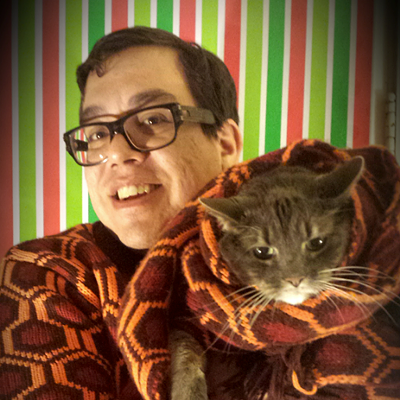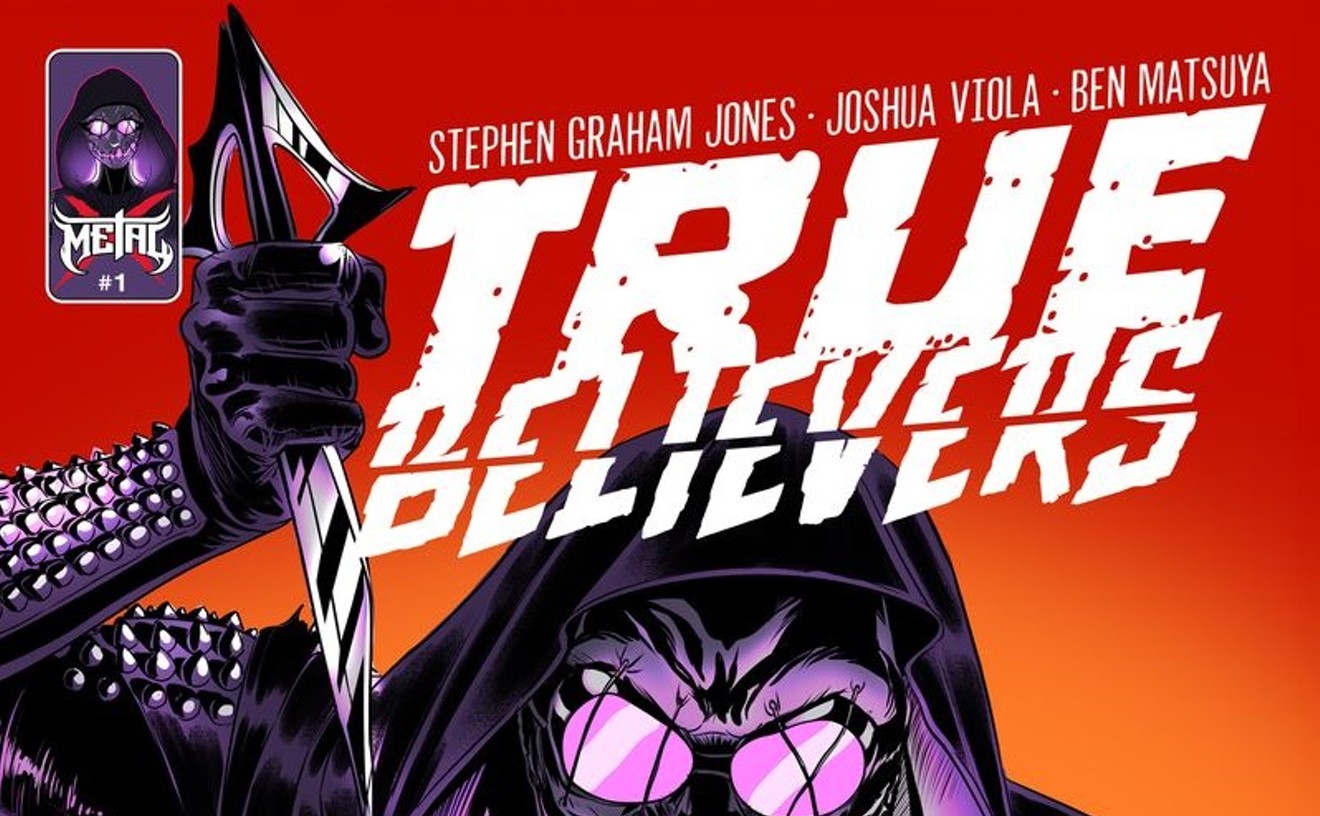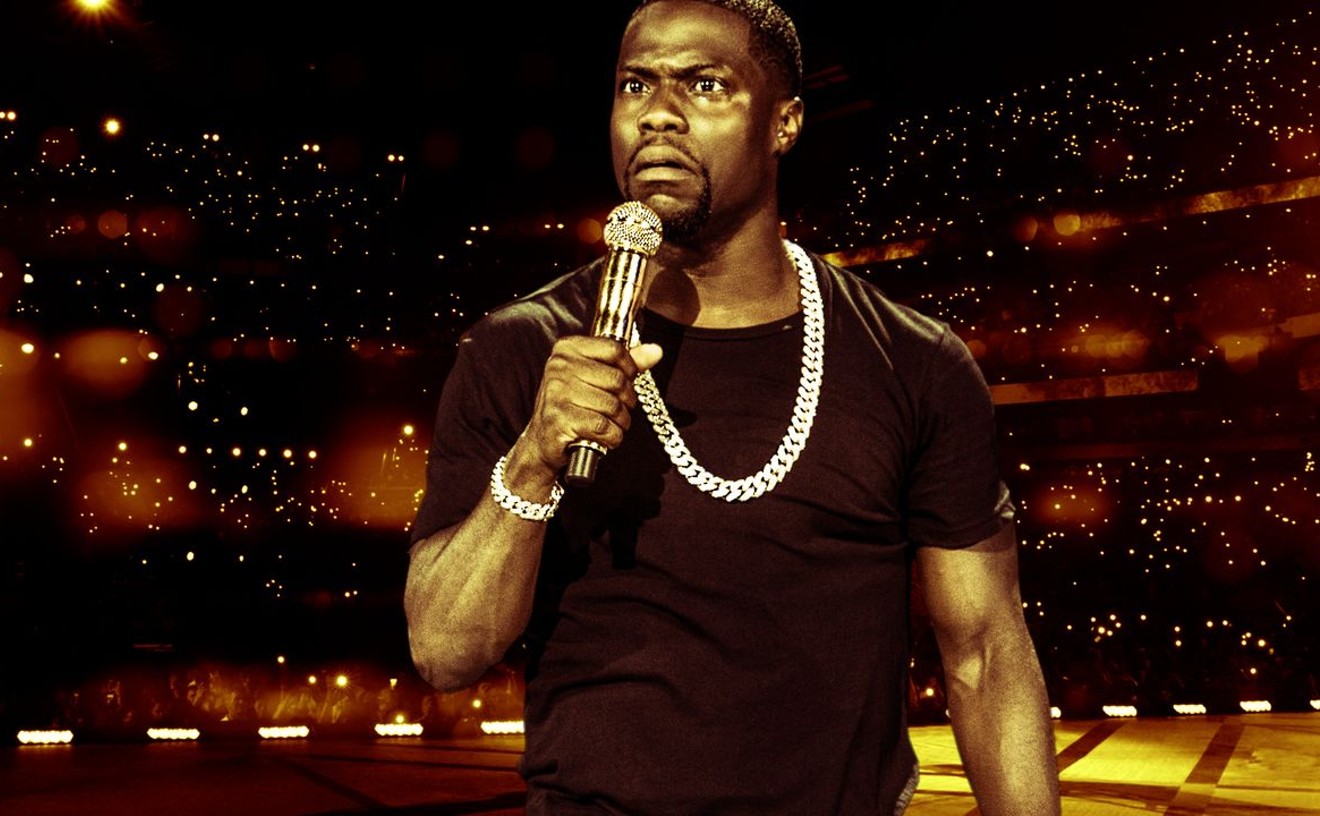Does gay have a particular sound? Is there a certain way that gay men speak that our brains read as a dead giveaway to their sexual orientation? The new film Do I Sound Gay?, opening Friday at the Mayan Theatre, explores the myth and science behind the queer vocal delivery, as well as the cultural ramifications.
As a gay man, I’ve often thought that my own voice isn’t gay enough to reveal to potential suitors that I play for their team, and is the only acceptable reason for my terminal singlehood. “They just don’t know I’m gay, so of course they’re not going to hit on me,” I’d think. I never overcompensated for my tone, because ain’t nobody got time for that, but I always wondered if my “not-so-gay voice” was the product of the female role models in my life – mostly Spanish Pedro Almodovar characters and horror-film final girls – who are all very particular in their pronunciation and enunciation and not very girly in the end. Cultural imitation is just one of many avenues explored in this film.
David Thorpe, the director of Do I Sound Gay?, became interested in his own speech patterns after a particularly tender breakup in his forties left him depressed and oversensitive about his entire being. Then, while on a train ride to popular gay resort Fire Island, Thorpe found himself surrounded by a cacophony of gay voices, and he started wondering if these tones were more nature or nurture. He began filming himself going to speech therapists and discovering what it was about his voice that made him different. In the resulting film, he breaks down his own anxiety on sounding gay with his friends and speaks to various gay notables including Tim Gunn, George Takei, Dan Savage and, of course, David Sedaris, who are all known for their specific gay lilts —- or lack thereof.
We recently spoke with Thorpe about his film, and about what makes some gay men sound more like Liberace than others:
Westword: You describe a train ride to Fire Island, filled with a symphony of differing gay voices, as the inspiration for your film. Can you remember the first voice you ever heard that made you say, “I think he’s gay”?
David Thorpe: Well, I have to sweep aside the cloudiness of time for me ([aughs], but I’d have to say that it was an aggregate of a classmate of mine in school and Paul Lynde on Bewitched in the late ‘70s. It was their effeminacy. They didn’t sound like regular guys, and as I was hitting puberty and middle school, I had a small awareness of gay and what made it different from the way that you were supposed to act and sound like everyone else.
You also mention being single at forty years old as one reason you became so concerned about “sounding gay.” How did your mind connect those two ideas?
After I broke up with my boyfriend, my confidence was at an all-time low, and I was very vulnerable. In those moments, the less confidence I’ve had the more I scrutinize what’s wrong with me. That comes from a very young age, and when I’m not as confident in myself, I’m not as confident in being gay. It takes a lot of confidence to be yourself every day. My voice is my main signal that I’m gay, and when my confidence wavers, I hear the effeminacy more — and I was taught at a young age that effeminacy was wrong for a boy. It plays on those anxieties.
In your research for the film, what was the most interesting thing that you learned about the “gay voice” and your own way of using it?
It’s important to remember that there is no such thing as the “gay voice”; there are just men who sound more effeminate than others. My biggest revelation was that other people have this same anxiety about sounding gay, including one of my very best friends. Talking to David Sedaris was great, because he shared some of those insecurities. It felt good to hear that; finding this out was a great way to heal.
You speak to some great gay icons in your film about their voices. Which of them, like Sedaris, would you say had the best understanding and advice on the topic? Also, what gay icon, living or dead, would you have loved to have talked to in your film and why?
I don’t want to say that any of them had a better understanding; they all shared different experiences, all of which were valid. Dan Savage had put the most thought into it, and he was the most passionate about gay men resisting the idea of getting caught up in their voices. He believes that gay men should embrace authenticity and femininity: It’s who you are.
And if I could have had anyone for my film, I would have had Paul Lynde, of course! At the height of his fame, he logged more television screen time than anyone. He was bigger than John Wayne! In this day and age, it’s hard to wrap your mind around that fact from forty years ago. This gay man was so open and so influential to me and my upbringing. His Halloween special is unforgettable. Do yourself a favor and track down a copy of that.
After all of your efforts to affect your voice and the process of making this film, how do you feel about your voice now?
I would be lying if I said I never feel self-conscious about sounding gay — but now the voice in my head tells me, fuck it — there’s nothing wrong with who I am. And I’d have to say, after the therapies, my voice has actually gotten better – not less gay, but it works in an easy, comfortable way that I don’t want to hide.
My final question for you: Do you think that I sound gay?
Ha! I would have to say that I wasn’t sure. There were times that I thought you sounded gay, but I wouldn’t say that you sounded stereotypically gay. We code-switch all the time depending on our situations, and there are people like David Sedaris, who gets called "Ma’am" on the phone. On the phone, with friends, it’s all okay to waver. Nobody’s voice is stable, and we all shift dress. It doesn’t mean we aren’t acting gay-appropriate. You are you, and as long as you’re being yourself, you’ll sound like you, too.
Do I Sound Gay? opens Friday, July 17, for a one-week engagement at Landmark’s Mayan Theatre, 110 South Broadway. For tickets and showtimes, go to landmarktheaters.com.
[
{
"name": "Air - MediumRectangle - Inline Content - Mobile Display Size",
"component": "12017618",
"insertPoint": "2",
"requiredCountToDisplay": "2"
},{
"name": "Editor Picks",
"component": "17242653",
"insertPoint": "4",
"requiredCountToDisplay": "1"
},{
"name": "Inline Links",
"component": "18838239",
"insertPoint": "8th",
"startingPoint": 8,
"requiredCountToDisplay": "7",
"maxInsertions": 25
},{
"name": "Air - MediumRectangle - Combo - Inline Content",
"component": "17261320",
"insertPoint": "8th",
"startingPoint": 8,
"requiredCountToDisplay": "7",
"maxInsertions": 25
},{
"name": "Inline Links",
"component": "18838239",
"insertPoint": "8th",
"startingPoint": 12,
"requiredCountToDisplay": "11",
"maxInsertions": 25
},{
"name": "Air - Leaderboard Tower - Combo - Inline Content",
"component": "17261321",
"insertPoint": "8th",
"startingPoint": 12,
"requiredCountToDisplay": "11",
"maxInsertions": 25
}
]











